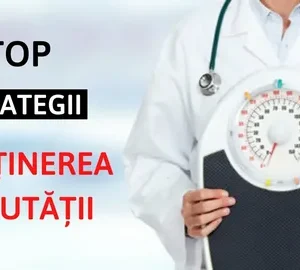Maintaining a healthy weight is more than a matter of looking good—it’s vital for your overall health and well-being. However, for many people, managing their weight feels like an uphill battle. Weight loss programs and medications can play pivotal roles in supporting individuals on this journey. Whether you’re new to the idea or considering upgrading your approach, let’s break it all down step by step.

Understanding Weight Loss
Before jumping into programs or medications, let’s understand the basics. At its core, weight loss revolves around a simple principle: burning more calories than you consume. This is where terms like “caloric deficit” come into play. However, other factors, such as metabolic rate, hormones, and physical activity, also significantly influence outcomes.
Many people buy into myths like “carbs are bad” or “you must starve yourself to lose weight,” but these are not only wrong—they can be harmful. The truth is, balanced nutrition and realistic habits are more effective.
What Are Weight Loss Programs?
Weight loss programs offer structured methods for losing weight. They can include:
- Diet-Based Programs: Focused on meal planning and calorie control.
- Exercise-Focused Plans: Relying on workouts to create a caloric deficit.
- Behavioral Therapy: Teaching you to develop better habits and mindset.
Whether it’s a generalized approach or tailored to your specific needs, picking the right program is crucial for success.

The Role of Weight Loss Medications
For those who struggle despite diet and exercise, medications can be a game changer. These include:
- Prescription Medications: Used under medical guidance, such as Orlistat or Phentermine.
- Over-the-Counter Options: Slimming pills available in stores with varying levels of effectiveness.
- Natural Supplements: Derived from ingredients like green tea extract or Garcinia Cambogia, often marketed as “safe alternatives.”
Each comes with potential benefits, risks, and considerations, making it essential to choose wisely.
Popular Weight Loss Programs
Some popular programs include:
- Weight Watchers: Points-based eating with community support.
- Keto Diet: High-fat, low-carb plans that force your body into ketosis.
- Intermittent Fasting: Cycling between eating and fasting periods.
While these have helped many, not every method works for everyone. Always experiment cautiously and monitor your body’s responses.
Weight Loss Medications Explained
Medications like Saxenda and Contrave are often recommended for individuals with medical conditions, such as obesity or related issues like Type 2 diabetes. Here’s what you should know:
- Mechanism: Many suppress appetite or block fat absorption.
- Eligibility: Typically prescribed when your BMI exceeds a certain limit.
- Side Effects: Include nausea, headaches, or more serious complications.

Combining Programs and Medications
For some, the combination of lifestyle programs and medications offers the best of both worlds. Medications can address physiological hurdles, while lifestyle adjustments focus on habits.
Conclusion
Achieving sustainable weight loss is about combining the right tools, strategies, and mindset. Programs and medications are powerful aids but must always be approached carefully, under expert guidance.
FAQs
- What’s the safest weight loss medication?
Consult your doctor for FDA-approved medications tailored to your health profile. - Can I lose weight without medications?
Absolutely! Many achieve success through diet and exercise alone. - Do weight loss programs guarantee results?
Results vary based on adherence and individual differences. - Are weight loss supplements effective?
Some are, but evidence is often limited. Research carefully before use. - How do I choose the right program?
Consider your goals, preferences, and medical advice for the best fit.

